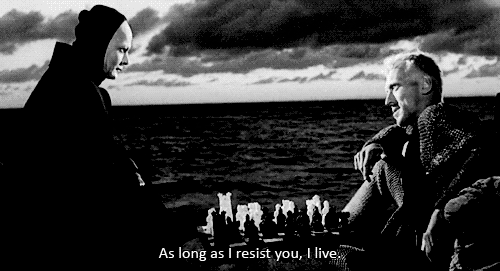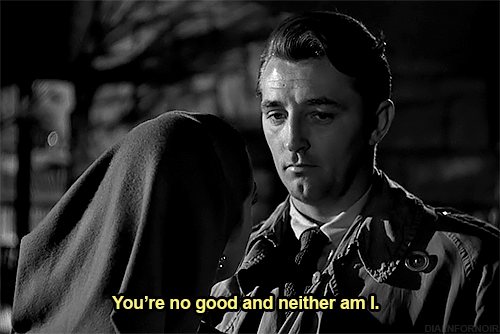Ketu in 4th: The Ghost in the Ancestral Hallway
By Tejaswi Sharma / July 19, 2025 / 203 Comments / Planets and house
If the Moon in the 4th is a lullaby,
And Jupiter is a hymn,
Then Ketu in the 4th is a dirge — ancient, haunting, and echoing from a room that no longer exists.
This is the placement of rootlessness in the root house.
The soul memory says: “I’ve been here before. I’ve had the home, the family, the comfort. And now? I don’t need it. But I still long for it. And I don’t know why.”

It’s the ache of a hearth you can’t return to.
The phantom smell of incense.
The closed door you still knock on in dreams.
🧩 Archetype: The Dispossessed Mystic
Ketu in the 4th is The Wandering Monk of the emotional body.
Not because they choose detachment, but because they were born carrying unfinished karma around home, family, and belonging.

They are the spiritual nomad — someone who carries an emotional void that doesn’t quite fill, even in loving homes.
Their childhood might have been confusing, karmic, or strangely disconnected — not necessarily traumatic, but full of unspoken absences. Love was present, but something always felt… missing. Off. Like the emotional furniture was rearranged while they slept.
📚 Client Anecdotes
A Virgo Ketu client told me: “My parents did their best. But I always felt like I was adopted by fate. Like I landed in a family that didn’t know what to do with me. I was the ghost child in a house full of people.”

A Pisces Ketu woman once said, “Home has always been a waiting room. I love it, but I can’t stay there. The moment I feel safe, I want to leave. And then I miss it. It’s like being exiled from a place I built myself.”
And a Scorpio Ketu client confessed: “I grew up around so much secrecy. Everyone loved each other, but no one said it. I became fluent in emotional tension. I still don’t know how to rest in peace.”
🧠 Inner Myth: “I Was Loved, But Not Held”
Ketu in the 4th carries the inner narrative:
“I already lived the family karma. I don’t want more of it.
But why do I still grieve what I left behind?”

This placement often comes from past lives steeped in home, family duty, caregiving, or tradition. Think nuns, nurses, housewives, farmers, priests, or clan elders. They mastered domestic loyalty — perhaps to the point of losing themselves.
So in this life, Ketu says: Let it go. Don’t build your life around the past again.
But it’s not so easy.
Because detachment doesn’t always equal peace.
Sometimes it equals loneliness that smells like your childhood bedroom.
📐 Processing Style: Detached, Ancestrally Haunted, Introspective
Ketu here often processes emotion in silence. In solitude. In loops.
They’re the child who didn’t cry but memorized every moment they weren’t held.

They may journal obsessively, but never share it.
They may dream of their ancestors without even knowing their names.
They may walk into temples and start weeping for no reason.
They’re the kind to say:
“I don’t really know what home means.”
“I always feel like I’m leaving, even when I’m staying.”
“Family ties feel like threads I’m supposed to hold, but they burn.”
🛑 Pitfall: Spiritual Bypassing & Rootlessness
The shadow side of this placement?
- Over-intellectualizing emotions. (“I don’t need love. I’ve transcended it.” — said while crying into a bowl of cold dal.)
- Withdrawing from relationships at the first sign of emotional need.
- Avoiding deep attachment for fear of repeating karmic pain.
- Exiling oneself emotionally — playing ghost in their own home and surroundings, Amitabh Bachchan in Deewar had this same energy, it was not anger, the anger was a mask.
Ketu in the 4th often says: “I’m fine alone.”
But what they really mean is: “I’ve forgotten how to belong.”

🏠 Home: The Sacred Discomfort
Home is both a sanctuary and a trigger.
They crave stillness but are restless within it.
They love solitude but mourn its silence.
You might find:
- A home that looks perfect, but feels empty
- Constant moving, shifting, renovating — searching for “the right vibe”
- An obsession with ancestral rituals or old photographs
- Altars made of grief, tiny shrines of things they lost
In case you want to feel this energy in a song, listen to Koi Hota Jisko Apna from Mere Apne(1971), you will feel all the Ketuvian grief poured in. And watch the entire movie too, it is even more so.
Home is never just a place.
It’s a karmic theater. A ghost story. A question that keeps changing its answer.
👪 Family Systems & Childhood Scripts
Family with Ketu in the 4th can be:
- Emotionally absent but physically present
- Burdened with ancestral guilt or unspoken traumas
- Full of people who “did the right thing” but never said “I love you”
- Or, alternately, intensely karmic bonds with one parent — especially the mother
This placement may have been cast as:
- The “quiet one”
- The “emotionally self-sufficient” child
- The one who “didn’t need anything” (even when they did)
- The memory-keeper or ancestral vessel

But here’s the twist: the soul chose it.
Because it needed to remember that belonging doesn’t require attachment to pain.
💼 Career: The Ancestral Liberator
Ketu in the 4th may not chase “career” in the traditional sense.
But when they do, their path often involves:
- Working away from home (emotionally or physically)
- Helping others process their past (therapists, healers, social historians)
- Creating spiritual or artistic spaces of sanctuary for the rootless
- Architecture, land healing, home-based energy work
- Releasing family karma through ritual, art, or quiet rebellion

They’re not here to repeat what was.
They’re here to rewrite the blueprint.
With gentleness. With space. With grief-turned-wisdom. And that sort of wisdom often comes best alone when you sit in a cafe, look out the window and think what an absurd world this is.
🔮 Planetary Check-Ins
- With the Moon: Is my detachment emotional wisdom or unhealed fear?
- With Saturn: Am I recreating emotional scarcity to prove I’m strong?
- With Mars: Do I see anger as a threat to peace, or a path to truth?
- With Venus: Can I create beauty that nourishes me, not just others?
🧘 Integration & Healing Practices
- Build an ancestor altar — not to worship, but to release.
- Practice emotional presence. Say “I miss you” without flinching.
- Sit in your childhood room (or imagine it). Reparent the ghost.
- Redefine “home.” Make it a practice, not a place.
- Take a silent retreat. Let stillness feel safe.
- Wear white near your stomach — Ketu loves purification.
- Mantra: “Om Ketave Namah. Salutations to the revealer of karma.
- Repeat: “I am not here to carry the house. I am here to free the spirit within it.”
✨ Closing: From Ancestral Echo to Living Presence
Ketu in the 4th doesn’t want you to be homeless.
It wants you to stop haunting yourself.
It wants you to know that the past does not own you.
That your family story is a chapter, not a destiny.
That safety can be chosen, not just inherited.
You are not meant to repeat the wound.
You are meant to bless it — and walk forward.

And when you do?
You don’t just find home.
You become the one your ancestors were praying would come back…
not to stay,
…but to set them free.

i43hiv
Thank you for your sharing. I am worried that I lack creative ideas. It is your article that makes me full of hope. Thank you. But, I have a question, can you help me?
I don’t think the title of your article matches the content lol. Just kidding, mainly because I had some doubts after reading the article.
Hmm is anyone else encountering problems with the pictures on this blog loading? I’m trying to find out if its a problem on my end or if it’s the blog. Any suggestions would be greatly appreciated.
Find independent escorts Rio
экскурсия краби отзывы экскурсия звездные острова краби
https://bravomos.ru/ bravomos
Интерьер загородного дома Проектирование загородного дома — это комплексный процесс, который начинается с выбора местоположения участка и построения общей концепции. Стоит заранее продумать, какие помещения будут необходимы: спальни, ванные комнаты, общие зоны. Энергоэффективные технологии, такие как термомодернизация и использование солнечных панелей, помогут уменьшить расходы на энергоснабжение и обеспечить комфортные условия проживания. Не забывайте учитывать пространство для отдыха на открытом воздухе: веранду или террасу, где можно проводить теплые вечера с семьей и друзьями, наслаждаясь природой и свежим воздухом.
удаленная работа с телефона Выбирая интересные и стильные находки на ВБ, мы стремимся к самовыражению, к созданию уникального образа, отражающего наш внутренний мир. Лучшие находки с ВБ – это те, которые не только радуют глаз, но и приносят практическую пользу, становясь незаменимыми помощниками в повседневной жизни.
Индексация пенсий Предпенсионный возраст – особый период в жизни человека, когда особенно важна поддержка государства и общества. Льготы предпенсионерам призваны обеспечить плавный переход к пенсионной жизни, защитить от дискриминации на рынке труда, предоставить возможности для переобучения и повышения квалификации. Забота о предпенсионерах – это инвестиция в будущее, гарантия того, что люди, готовящиеся к заслуженному отдыху, будут чувствовать себя уверенно и защищенно.
отражающая изоляция Армированная пленка – это эволюция полиэтиленовой пленки, бронированная сеткой для повышения прочности и устойчивости к разрывам. Этот материал создан для экстремальных условий, где обычная пленка не выдержит напора стихии или механического воздействия. Бури, град, сильные порывы ветра – армированная пленка с честью выдержит любые испытания, обеспечивая надежную защиту строительным конструкциям, теплицам и другим объектам. Это инвестиция в долговечность и спокойствие.
https://qwertyoop.com qwertyoop
русские станции кайтсерфинга в хургаде гидрокостюм для кайтсерфинга
https://long-living.ru/
фабрика тлеграм Детская мебель Telegram и все, что связано с обустройством детской комнаты, также широко представлены в Telegram. Детская кроватка Telegram, двухъярусная кровать Telegram – родители могут найти все необходимое для создания комфортного и безопасного пространства для своих детей. Telegram предлагает огромный выбор детской мебели, включая детские диваны, кресла и другие необходимые предметы интерьера.
кресло Мягкая мебель – это не просто предметы интерьера, это основа комфорта и уюта в вашем доме. Будь то удобный диван для вечернего отдыха, элегантная кровать для спокойного сна или стильное кресло для чтения любимой книги, правильно подобранная мягкая мебель способна преобразить любое пространство. Вы решили купить диван или обновить спальню новой кроватью? Отличная идея! Выбор мягкой мебели огромен, и важно найти именно то, что идеально впишется в ваш интерьер и будет соответствовать вашим потребностям.
https://kitehurghada.ru/ кайт египет
беззаконие Хроники хаоса в лабиринте мнений и взглядов: исследуем канал
https://opalubka.market/ opalubka market
как работает xrumer 5.0 platinum Базы Xrumer — это ядро эффективной кампании продвижения. Различают несколько типов баз: базы Хрумер, пробитые базы Xrumer, базы Xrumer не сырые, базы Xrumer 23, базы Хрумер 23, базы Xrumer 19 и Хрумер 19, а также базы GSA. «Сырые» базы, как правило, требуют дополнительной очистки и фильтрации для повышения качества работы. Важно постоянно обновлять и проверять базы на актуальность, чтобы избежать попадания в неактуальные или заблокированные ресурсы.
xrumer телеграм Обучение Xrumer необходимо для полноценного использования его функционала. Существуют различные курсы и обучающие материалы, от базовых до продвинутых, охватывающие все аспекты работы с программой. В частности, обучение Xrumer 23 и Xrumer 23 strong Ai предполагает изучение новых возможностей, интеграции с искусственным интеллектом и оптимизированных алгоритмов. Обучение Xrumer 19 также актуально, так как многие пользователи продолжают использовать эту версию.
детский пейнтбол Лазертаг – это высокотехнологичная альтернатива пейнтболу, предлагающая динамичные сражения без физического контакта. Инфракрасные бластеры и сенсоры на жилетах обеспечивают точную фиксацию попаданий, а разнообразные сценарии игр делают каждую сессию уникальной. Лазертаг отлично подходит для детей всех возрастов, так как не требует специальной экипировки и исключает возможность испачкаться краской.
вызвать эвакуатор Услуги эвакуатора Мы предлагаем не просто эвакуацию, а полный спектр услуг для решения проблем на дороге. В их числе: эвакуация легковых и грузовых автомобилей, мотоциклов, спецтехники, а также предоставление техпомощи на месте – от запуска двигателя до замены колеса. Мы можем доставить ваш автомобиль в автосервис, на стоянку или в другой город. Наша цель – предоставить вам комплексное решение, чтобы вы могли максимально быстро вернуться к своим делам.
на что можно уменьшить ндс Налоговая оптимизация НДС требует глубокого понимания налогового законодательства и умения применять его на практике. Необходимо учитывать все нюансы и изменения в законодательстве. Постоянное обучение и повышение квалификации – залог успешной оптимизации.
cheap electronics online EU Мы осуществляем electronics shipping to Europe. Купите телефон с доставкой по ЕС и продукцию Apple с доставкой по ЕС. Наш smartphone store Europe shipping предлагает быструю доставку электроники по Европе. Мы – лучший онлайн магазин электроники в Европе!
атом казино вход Атом казино онлайн – это доступ к любимым играм в любое время и в любом месте. Наслаждайтесь качественной графикой и удобным интерфейсом на своем компьютере или мобильном устройстве.
Atom casino Атом казино регистрация: Простая и интуитивно понятная процедура регистрации займет всего несколько минут. Создайте свой аккаунт и начните играть прямо сейчас.
Галоплен Геотекстиль – незаменимый материал для укрепления грунта, дренажа и защиты почвы от эрозии в дорожном строительстве, ландшафтном дизайне и сельском хозяйстве.
заказать проект камина Купить проект банной печи Банная печь – это сердце любой бани. От правильности ее конструкции зависит качество пара и комфорт банных процедур. Готовый проект банной печи – это гарантия того, что ваша печь будет соответствовать всем требованиям безопасности и эффективности.
Атом казино бонусы: Мы ценим каждого игрока, поэтому предлагаем щедрые бонусы и акции. Приветственный бонус, депозитные бонусы, фриспины и многое другое ждет вас казино атом
атом казино скачать Атом казино онлайн – это доступ к любимым играм в любое время и в любом месте. Наслаждайтесь качественной графикой и удобным интерфейсом на своем компьютере или мобильном устройстве.
купить порядовку печи Купить проект банной печи – это гарантия правильного выбора конструкции и материалов для обеспечения оптимального температурного режима и комфортной атмосферы в вашей бане.
https://t.me/uhrenGermany026
атом казино официальный сайт Atom casino – это международная платформа для любителей азартных игр. Наслаждайтесь разнообразием игр, щедрыми бонусами и безопасной игровой средой.
https://t.me/uhrenGermany026
Интерактивная панель 98 дюймов Комплект интерактивной доски с проектором: Готовое решение для школы под ключ. Доска, короткофокусный проектор и крепление в одной коробке.
blockchain wallet recovery Bitcoin wallet credentials for sale are red flags; buying or selling such data is illegal and highly dangerous.
Купить интерактивную панель Костанай Интерактивная панель NexTouch Казахстан: Российские интерактивные панели NexTouch. Внесены в реестр, подходят для госзакупок.
Оборудование для цифровой образовательной среды Казахстан OPS компьютер для интерактивной панели Казахстан: Встраиваемые модули OPS. Превратите панель в мощный компьютер на Windows 10/11.
бездепозитные бонусы в казино за регистрацию
Член литературного клуба «Творчество и потенциал» Селезинка Александр Михайлович родился в 1976 г. Проживает в с. Дивеево Нижегородской области. Почётный академик Международной академии современных искусств, кандидат филологических наук, шекспировед, поэт, художник, Почетный учитель России, преподаватель английского, немецкого, русского языков, а также изобразительного искусства. Автор монографии “Библейские аллюзии в творчестве В. Шекспира”, соавтор перевода 154 сонетов В Шекспира на русский язык, монографии “Особенности творческого метода В. Шекспира” и четырех частей книги «Духовные сонеты». Участник художественных выставок. Открыл 5 персональных выставок. Член Союза русских художников. Член Евразийского художественного союза. Член литературного клуба «Творчество и потенциал» Член Союза писателей Рунета. Член Российского союза писателей. Лауреат международного конкурс искусств “Artex Awards”. Лауреат конкурса “Звезда Виртуоза”. Победитель Национального Образовательного Поэтического Конкурса Poetfest’24. Победитель конкурса «Голоса эпохи» в номинации «Выбор редакции». Награжден медалью «225 лет А. С. Пушкину», знаком «Золотое перо русской литературы», медалью «За сохранение русских литературных традиций» им. Великой княгини Ольги, медалью имени Л. Н. Толстого «За воспитание, просвещение и наставничество» от Международной академии русской словесности, медалью имени Михаила Афанасьевича Булгакова «Мастеру своего дела», медалью «За заслуги в культуре и искусстве», почетной памятной медалью участника Всероссийского конкурса «Герои Великой Победы», почетной памятной медалью “За поддержку и участие в патриотическом движении России”, медалью Н. В. Гоголя «За особые заслуги», медалью «130 лет С. А. Есенину».
https://enran.ua/purposeprod/mebli-dlya-ofisu/
марина экспресс фишерман краби Avani Koh Lanta Krabi Resort 4: курорт на острове Ко Ланта в провинции Краби с рейтингом 4 звезды. Краби: провинция в Таиланде, известная своими живописными пляжами и скалами.
https://enran.ua/
Прогон Xrumer телеграм Обучение Xrumer 23 strong телеграм: Продвинутое обучение Xrumer 23 через Telegram.
Член литературного клуба «Творчество и потенциал» Селезинка Александр Михайлович родился в 1976 г. Проживает в с. Дивеево Нижегородской области. Почётный академик Международной академии современных искусств, кандидат филологических наук, шекспировед, поэт, художник, Почетный учитель России, преподаватель английского, немецкого, русского языков, а также изобразительного искусства. Автор монографии “Библейские аллюзии в творчестве В. Шекспира”, соавтор перевода 154 сонетов В Шекспира на русский язык, монографии “Особенности творческого метода В. Шекспира” и четырех частей книги «Духовные сонеты». Участник художественных выставок. Открыл 5 персональных выставок. Член Союза русских художников. Член Евразийского художественного союза. Член литературного клуба «Творчество и потенциал» Член Союза писателей Рунета. Член Российского союза писателей. Лауреат международного конкурс искусств “Artex Awards”. Лауреат конкурса “Звезда Виртуоза”. Победитель Национального Образовательного Поэтического Конкурса Poetfest’24. Победитель конкурса «Голоса эпохи» в номинации «Выбор редакции». Награжден медалью «225 лет А. С. Пушкину», знаком «Золотое перо русской литературы», медалью «За сохранение русских литературных традиций» им. Великой княгини Ольги, медалью имени Л. Н. Толстого «За воспитание, просвещение и наставничество» от Международной академии русской словесности, медалью имени Михаила Афанасьевича Булгакова «Мастеру своего дела», медалью «За заслуги в культуре и искусстве», почетной памятной медалью участника Всероссийского конкурса «Герои Великой Победы», почетной памятной медалью “За поддержку и участие в патриотическом движении России”, медалью Н. В. Гоголя «За особые заслуги», медалью «130 лет С. А. Есенину».
https://enran.ua/
отель рейли краби Ко Ланте отели: разнообразие вариантов размещения.
Член Союза русских художников. Селезинка Александр Михайлович родился в 1976 г. Проживает в с. Дивеево Нижегородской области. Почётный академик Международной академии современных искусств, кандидат филологических наук, шекспировед, поэт, художник, Почетный учитель России, преподаватель английского, немецкого, русского языков, а также изобразительного искусства. Автор монографии “Библейские аллюзии в творчестве В. Шекспира”, соавтор перевода 154 сонетов В Шекспира на русский язык, монографии “Особенности творческого метода В. Шекспира” и четырех частей книги «Духовные сонеты». Участник художественных выставок. Открыл 5 персональных выставок. Член Союза русских художников. Член Евразийского художественного союза. Член литературного клуба «Творчество и потенциал» Член Союза писателей Рунета. Член Российского союза писателей. Лауреат международного конкурс искусств “Artex Awards”. Лауреат конкурса “Звезда Виртуоза”. Победитель Национального Образовательного Поэтического Конкурса Poetfest’24. Победитель конкурса «Голоса эпохи» в номинации «Выбор редакции». Награжден медалью «225 лет А. С. Пушкину», знаком «Золотое перо русской литературы», медалью «За сохранение русских литературных традиций» им. Великой княгини Ольги, медалью имени Л. Н. Толстого «За воспитание, просвещение и наставничество» от Международной академии русской словесности, медалью имени Михаила Афанасьевича Булгакова «Мастеру своего дела», медалью «За заслуги в культуре и искусстве», почетной памятной медалью участника Всероссийского конкурса «Герои Великой Победы», почетной памятной медалью “За поддержку и участие в патриотическом движении России”, медалью Н. В. Гоголя «За особые заслуги», медалью «130 лет С. А. Есенину».
Базы Хрумер телеграм Базы Xrumer 23: Базы данных, оптимизированные для самой последней версии программы Xrumer – версии 23. Они учитывают особенности этой версии и включают в себя свежие и актуальные веб-сайты. Важно использовать базы, соответствующие тематике продвигаемого ресурса и целевой аудитории. Регулярная проверка обязательна.
тайланд краби или пхукет Pimalai Resort & Spa Koh Lanta – это роскошный курорт на острове Ко Ланта, предлагающий эксклюзивный отдых и уединение.
краби ко ланта ко ланта
тайланд ко ланта пляжи ко ланты
остров ко ланта в тайланде паром ко ланта
краби чем хорош Бангкок Краби Авиабилеты: советую брать заранее.
ко ланта ко ланте
паромы пхукет краби Узнайте, как добраться до острова Ланта, чтобы быстро и комфортно начать свой отдых.
краби бич резорт Курорт Краби: Очень большое количество курортов, позволяющих выбрать наиболее подходящий для всех возможностей.
ко ланта таиланд ко ланта таиланд
bitcoin wallet recovery tool
mamuli.club
риобет казино Риобет Казино Официальный Сайт: Ваш Надежный Проводник в Мир Азарта Официальный сайт Риобет казино – это удобная и интуитивно понятная платформа, где вы найдете всю необходимую информацию об играх, бонусах, акциях и условиях использования казино.
массовые беспорядки
бездеп бонус Бездепозитные Фриспины: Бесплатные Вращения для Настоящих Ценителей Слотов Бездепозитные фриспины – это отличная возможность испытать удачу в любимых слотах, не рискуя собственными средствами.
riobet casino Риобет Казино: Мир Азарта и Возможностей Риобет казино – это популярная онлайн-платформа, предлагающая широкий выбор азартных игр для игроков со всего мира. Здесь каждый может найти развлечение по своему вкусу, от классических слотов до современных видеоигр с захватывающими сюжетами. Казино славится своей надежностью, честностью и высоким уровнем сервиса.
Pokerok – это международное имя, объединяющее под своим крылом тысячи игроков со всего мира. Платформа предлагает безопасную и надежную игровую среду, сертифицированное программное обеспечение и круглосуточную поддержку клиентов. pokerok скачать
приколы
казино с бонусом без депозита Рейтинг казино с бездепозитными бонусами – это полезный инструмент для выбора оптимального игрового портала, предлагающего самые выгодные условия для игры без депозита и гарантированную выплату выигрышей.
в каком казино дают за регистрацию бездепозитные бонусы
бездепозитные бонусы казино Бездепозитные Фриспины: Бесплатные Вращения для Настоящих Ценителей Слотов Бездепозитные фриспины – это отличная возможность испытать удачу в любимых слотах, не рискуя собственными средствами.
бездеп бонус Бонусы без Депозита: Играйте и Выигрывайте без Риска Бонусы без депозита – это универсальный термин, охватывающий все типы бонусов, которые не требуют от игрока внесения депозита.
безумно
онлайн казино без депозита Казино бонусы – это неотъемлемая часть индустрии онлайн-гемблинга. Они могут быть как бездепозитными, так и депозитными, и предлагаться как новым, так и постоянным игрокам. Главное – уметь правильно их использовать и не забывать об ответственной игре.
Покерок регистрация – это первый шаг на пути к большим выигрышам и незабываемым эмоциям. Процесс регистрации прост и занимает всего несколько минут. После завершения вы сможете пополнить счет и начать играть. https://pokerbonuses.ru/download/index.html
казино без депозита Топ казино с бездепозитными бонусами – это список проверенных и надежных онлайн-казино, предлагающих самые выгодные условия для игры без предварительного пополнения счета.
Адвокат Рудный Споры по госзакупкам Астана: Обжалование итогов тендеров, защита от включения в реестр недобросовестных поставщиков (РНУ), споры с заказчиками.
банкротство мфц БФЛ (банкротство физических лиц) включает в себя такие этапы, как реструктуризация долга и списание долгов. Реструктуризация позволяет изменить условия кредита для облегчения выплат. Списание долгов – это финальный этап банкротства, освобождающий должника от обязательств. Помощь квалифицированных юристов необходима для успешного прохождения процедуры банкротства. Коллекторы, кредиты, микрозаймы и займы – все это может привести к ситуации, когда банкротство становится единственным выходом. Юридическая помощь и бесплатная консультация со специалистом помогут оценить перспективы и выбрать оптимальную стратегию.
выплаты по контракту Льготы военнослужащим по контракту включают жилье, военную ипотеку, медицинскую страховку, отпуск, военную пенсию, льготы семьям, региональные льготы, компенсацию за аренду жилья и возможность получить земельный участок.
английский для детей 6 лет
Игровой чат AniMatrix Карточки аниме становятся ключом к победе, каждая обладает уникальными характеристиками и способностями.
Развод через суд Казахстан Адвокат по трудовым спорам Караганда: Восстановление на работе, взыскание невыплаченной заработной платы, оспаривание незаконных увольнений и дисциплинарных взысканий.
рефинансирование Процедура банкротства – это сложный и многоэтапный процесс, регулируемый законом о банкротстве. Банкротство через МФЦ – это упрощенная внесудебная процедура, доступная для граждан с небольшим долгом и отсутствием ценного имущества. Долговые обязательства, будь то кредиты, займы или задолженности по налогам, могут стать причиной банкротства. Официальное банкротство позволяет должнику законно избавиться от долгов и начать жизнь с чистого листа. Закон “о несостоятельности (о банкротстве)” регулирует все аспекты процедуры банкротства. Изучение отзывов о банкротстве может помочь принять взвешенное решение и избежать ошибок.
английский для детей 7 лет
Взыскание морального вреда Адвокат по кражам и грабежам Караганда: Защита обвиняемых по имущественным преступлениям. Примирение сторон, возмещение ущерба, прекращение дела.
Составление договоров для бизнеса Условно-досрочное освобождение (УДО) Казахстан: Подготовка ходатайств об УДО или замене наказания более мягким. Помощь осужденным в колониях по всему РК.
Сбор карточек онлайн Игровой бот карточки поможет вам разобраться в сложных механиках игры и разработать собственные стратегии.
казино с бездепозитным бонусом Онлайн казино без депозита – это удобный и доступный способ испытать удачу, не выходя из дома. Виртуальные залы игровых автоматов и столов с рулеткой открыты 24 часа в сутки, 7 дней в неделю. Главное – выбрать надежное и проверенное казино, чтобы не стать жертвой мошенников.
Игра AniMatrix онлайн Онлайн аниме игра AniMatrix открывает двери в мир бесконечных возможностей и сражений.
английский для детей 7 8 лет
https://pg37.ru/top-prodazh-semyan-gazona-po-reytingu-internet-magazina-gazonov
бездепозитные бонусы в казино за регистрацию 2026
https://github.com/sageetl/Sage-50/releases
Affiliate Programs rev share: Подробный разбор модели RevShare: преимущества и недостатки для аффилиатов
карниз потолочный электрический Электрический карниз для штор купить – это умное решение для тех, кто ценит свое время и стремится к максимальному комфорту. Выбирайте из широкого ассортимента моделей, от классических до ультрасовременных, и создайте интерьер своей мечты. Электрический карниз Алиса: Интеграция с умным домом – это следующий уровень комфорта. Управляйте шторами голосом, создавайте сценарии освещения и наслаждайтесь удобством современных технологий.
https://enran.ua/
asian sports bookmakers 3snet: Подробный обзор одной из ведущих партнерских сетей в индустрии
электрический карниз двухрядный Карнизы для штор потолочные электрические – это современное и функциональное решение для любого интерьера. Простота установки и удобство управления делают их все более популярными.
https://github.com/mscsys/WinDbg
Affiliate Marketing СPA Traffic: Методы привлечения CPA трафика и его оптимизация для iGaming-офферов.
1cupis brazilian igaming summit: Анализ перспектив бразильского рынка на Brazilian iGaming Summit. igaming job: Поиск работы в iGaming: где искать и на что обратить внимание
https://github.com/logonx/Windows-App/releases
888 casino официальный сайт Казино 888: Место, где сбываются мечты. Регистрируйтесь, получайте бонусы и окунитесь в атмосферу азарта и роскоши. Каждый спин может стать решающим!
Диагностика Leran. Ремонт электронных модулей, замена подшипников и сальников.Ремонт стиральных машин Graude Алматы Подбор и замена приводного ремня (профили J, H, 1270, 1195 и др.). Если барабан легко крутится рукой, но не мотором — нужен новый ремень. Цена от 2000 тг. Ремонт двигателя стиральной машины
кракен казино зеркало Kraken казино: Синоним надежности и честности в онлайн-гемблинге. Откройте для себя мир захватывающих игр и щедрых бонусов. kraken casino: The ultimate destination for thrill-seekers and those who crave big wins. Explore a vast selection of games and experience the excitement like never before.
Замена изношенных втулок циркуляционного насоса или сливной помпы. Извлечение осколков.Не растворяется таблетка в посудомойке Посуда мокрая после цикла? Мы проведем ремонт системы сушки: замену вентилятора, ТЭНа или термоактуатора открытия двери. Диагностика датчиков влажности и температуры. Восстановим режим сушки, чтобы вы доставали из машины абсолютно сухую посуду.Посудомоечная машина не включается
vbet.am Vbet.am: Ваш надежный проводник в мир онлайн-развлечений
888 казино бонусы 888 Casino: Легенда азарта, проверенная временем. Откройте для себя мир, где роскошь сочетается с инновациями, а крупные выигрыши становятся реальностью. Приготовьтесь к захватывающему путешествию в царство непревзойденного развлечения.
трипскан ссылка Tripscan: Откройте для себя мир безопасных и осознанных путешествий, где каждый шаг – это вклад в собственное развитие и понимание. Tripscan – это не просто платформа, это ваш надежный компас в бескрайнем океане личного исследования, помогающий отличить истинные жемчужины от мимолетных иллюзий. Трипскан: Верните контроль над своим опытом, вооружившись знаниями и подготовкой. Трипскан – это ваш личный навигатор, помогающий ориентироваться в сложных лабиринтах сознания и избегать нежелательных последствий. Tripskan: (Транслитерация) – ваш надежный путеводитель в осознанные состояния, предоставляющий инструменты для безопасного исследования глубин разума. Трип скан: Технология, позволяющая анализировать и оценивать потенциальные риски и выгоды каждой поездки в неизведанное. Tripscan – это ваш личный эксперт, помогающий принимать взвешенные решения и обеспечивающий максимальную безопасность во время путешествия. Трипскан вход: Ваш ключ к сообществу единомышленников, стремящихся к самопознанию и развитию. Здесь вы найдете поддержку, вдохновение и полезные советы от опытных путешественников. Сайт трипскан: Ваш ресурс номер один для получения информации о безопасных практиках, надежных источниках и проверенных методиках. Tripscan – это ваш личный библиотекарь, предоставляющий доступ к обширной коллекции знаний и опыта. Трипскан ссылка: Просто перейдите по ссылке и начните свое путешествие к осознанности и самопознанию. Tripscan – это ваш личный проводник в мир удивительных открытий и трансформаций. Трипскан зеркало: Обеспечьте себе бесперебойный доступ к ресурсу в любое время и в любом месте. Ваше путешествие к самопознанию не должно знать границ.
проститутки астаны ?ыздар нет Астана: Горечь отказа, словно зимний ветер, пронизывает столичные улицы. В шумном мегаполисе, среди спешащих силуэтов и мерцающих огней, эти слова – крик о помощи, мольба об искренности. Это печальный рефрен, отражающий раны неразделенной любви и поиск настоящих чувств в мире фальши. Здесь каждый ищет свое место под солнцем, но многие тонут в одиночестве, не находя ответа на свой безмолвный вопрос.
кыздар нет ?ыздар нет: (повтор) — Отзвук тишины, в которой слышен лишь стук собственного сердца, напоминающий о хрупкости человеческих чувств и о том, как легко потеряться в этом мире, где все измеряется деньгами и статусом. Киздар нет: (искаженное написание) — Кривое зеркало современного общества, отражающее его недостатки и пороки. Даже в этой опечатке сквозит отчаяние тех, кто ищет искренность и взаимопонимание, но находит лишь фальшь и лицемерие. Это мольба о спасении, заглушенная шумом мегаполиса.
эскорт москва Эскортницы: Цветы ночи, окутанные ореолом таинственности и соблазна. За маской уверенности и независимости скрываются сложные человеческие судьбы, полные надежд, разочарований и стремления к лучшей жизни. Они – профессионалы своего дела, умело сочетающие красоту и интеллект, чтобы удовлетворить потребности своих клиентов и заработать на жизнь в этом непростом и зачастую жестоком мире.
эскорт питер Эскорт Москва: Город больших возможностей и больших соблазнов, где каждый ищет свое место под солнцем, а желания становятся движущей силой. Здесь, в лабиринте ночных клубов и дорогих ресторанов, индустрия эскорта предлагает свои услуги тем, кто жаждет роскоши, внимания и удовлетворения своих самых сокровенных фантазий. Это мир, где иллюзии стоят дорого, а реальность часто оказывается жестокой и разочаровывающей.
https://intermuseum-2013.ru/pgs/nabor-pervoj-mediczinskoj-pomoshhi-obyazatelnyj-sostav-2025.html
vbet Vbet.am: Ваш надежный проводник в мир онлайн-развлечений
интим Эскорт: За кулисами роскоши, где элегантность встречается с интригой, разворачивается сложный танец желаний. Это мир, окутанный флером эксклюзивности, где каждая деталь отточена до совершенства, от манер до нарядов. Здесь правит бал не только физическое влечение, но и тонкое искусство создания иллюзии идеального сопровождения, где каждый жест, взгляд и слово рассчитаны на удовлетворение самых изысканных запросов. Интим: За гранью социально приемлемого, в сфере личных предпочтений и глубоких чувств, где обнажаются не только тела, но и души. Интимность – это не просто физическая близость, это возможность поделиться сокровенным, раскрыть свою уязвимость и обрести понимание и поддержку в объятиях другого человека. Это момент, когда стираются границы и рождается истинная связь. Эскорт Москва: В сердце мегаполиса, где кипит жизнь и не спят амбиции, индустрия эскорта предлагает свой взгляд на роскошь и развлечения. Здесь каждый клиент – VIP-персона, а каждая встреча – тщательно спланированное мероприятие, призванное удовлетворить самые взыскательные вкусы. За блеском и гламуром скрываются сложные человеческие судьбы и истории, полные надежд и разочарований. Эскортницы: Современные куртизанки, обладающие не только привлекательной внешностью, но и развитым интеллектом, умением поддержать разговор и создать атмосферу комфорта и доверия. Они – профессионалы своего дела, умело сочетающие искусство обольщения с навыками психолога и компаньона. За маской уверенности и независимости скрываются личные драмы и поиски своего места в этом сложном и противоречивом мире. Интим Сити: Виртуальный мир, где границы дозволенного размываются, а фантазии становятся реальностью. Здесь каждый может найти что-то для себя, от невинного флирта до откровенных сцен, позволяя ненадолго забыть о повседневных проблемах и окунуться в мир чувственных удовольствий и фантазий.
интим Интим Сити: Виртуальное убежище, где каждый может найти свою гавань удовольствия и фантазий. Здесь нет границ и ограничений, а правила диктуют лишь собственные желания. Это мир, где анонимность позволяет раскрыть свои самые сокровенные фантазии, найти единомышленников и получить удовлетворение, не выходя из дома. Но за кажущейся свободой и доступностью скрывается опасность потерять связь с реальностью и утонуть в виртуальном океане соблазнов.
скачать игры по прямой ссылке Скачать игры по прямой ссылке – один из самых удобных и быстрых способов получить доступ к новому развлечению. Множество онлайн-платформ и сайтов предлагают прямые ссылки на загрузку игровых файлов, избавляя от необходимости использования торрент-клиентов. Преимущества очевидны: высокая скорость скачивания, отсутствие зависимости от количества сидов и личеров, а также повышенная безопасность, поскольку ссылки, как правило, перед публикацией проверяются на наличие вредоносного кода. Однако, будьте внимательны и доверяйте только проверенным источникам, чтобы избежать скачивания подделок или инфицированных файлов.
Affiliate Programs
индивидуалки Эскорт: Симфония страстей, разыгрывающаяся в полумраке роскошных апартаментов. Тонкий аромат дорогих духов, приглушенный свет свечей и шепот обещаний создают атмосферу, где реальность уступает место иллюзии. Здесь, в этом мире, где желания правят бал, каждый жест и слово имеют свою цену, а близость становится товаром, доступным тем, кто готов платить за нее. Это игра, где эмоции – лишь маски, скрывающие истинные чувства и намерения, а главная цель – удовлетворение мимолетной прихоти.
888 казино 888 Казино официальный сайт: Русскоязычная версия легендарного казино, предлагающая адаптированный интерфейс и поддержку на родном языке. Наслаждайтесь любимыми играми с максимальным комфортом.
скачать игры без торрента Скачать игры с Яндекс Диска – это использование удобного и знакомого инструмента для получения игровых файлов. Простота, доступность и высокая скорость – ключевые характеристики этого метода. Многие разработчики, особенно инди-студии, выбирают Яндекс Диск для распространения своих игр, предлагая пользователям простой и быстрый способ ознакомиться с их творчеством. Интерфейс Яндекс Диска интуитивно понятен, что делает процесс скачивания максимально комфортным.
индивидуалки Интим Сити: Виртуальный лабиринт, где фантазии становятся реальностью, а желания обретают форму. Здесь можно найти все, что угодно: от невинного флирта до самых извращенных фантазий. Но за анонимностью и доступностью скрывается опасность потерять связь с реальностью, погрузиться в мир иллюзий и забыть о настоящей любви.
3s info
https://federalgaz.ru/
buy AirPods Europe
опт для маркетплейсов Остатки Ozon и невыкупленные товары Ozon – это скрытые сокровища, которые ждут своего часа. Найдите их, оцените потенциал и превратите в источник стабильного дохода. Бизнес на перепродаже – это искусство, требующее внимательности, аналитики и предприимчивости.
used iPhone for sale Europe
https://kotel-rs.ru/
https://kotel-rs.ru/
https://kotel-rs.ru/
https://forums.planetdestiny.com/threads/%D0%9E%D0%BD%D0%BB%D0%B0%D0%B9%D0%BD-%D1%81%D0%B5%D1%80%D0%B2%D0%B8%D1%81-mostbet-%D1%81%D1%82%D1%80%D1%83%D0%BA%D1%82%D1%83%D1%80%D0%B0-%D0%B8-%D0%BF%D1%80%D0%B8%D0%BD%D1%86%D0%B8%D0%BF%D1%8B-%D1%80%D0%B0%D0%B1%D0%BE%D1%82%D1%8B.45368/
http://dvi.dp.ua/wr_board/tools.php?event=profile&pname=umulycu
melbet casino Melbet сайт – это удобная и функциональная платформа для ставок на спорт и игры в казино. Интуитивно понятный интерфейс, быстрая загрузка страниц и широкий выбор опций делают использование сайта максимально комфортным. На сайте Melbet можно найти все необходимое для успешной игры: статистику, результаты матчей, трансляции и многое другое.
ggpokerok Покерок официальный сайт – это надежный источник информации о платформе, ее правилах, акциях и турнирах. Здесь можно найти ответы на любые вопросы, касающиеся игры, пополнения счета и вывода средств. Официальный сайт – это гарантия безопасности и честности, что особенно важно в мире онлайн-гемблинга.
мелбет промокод Melbet сайт – это удобная и функциональная платформа для ставок на спорт и игры в казино. Интуитивно понятный интерфейс, быстрая загрузка страниц и широкий выбор опций делают использование сайта максимально комфортным. На сайте Melbet можно найти все необходимое для успешной игры: статистику, результаты матчей, трансляции и многое другое.
pokerok скачать Pokerok – это международная платформа, объединяющая игроков со всего мира. Здесь можно встретить как начинающих любителей, так и опытных профессионалов, готовых бросить вызов и испытать свои силы. Разнообразие уровней ставок и форматов игры позволяет каждому найти что-то по душе, вне зависимости от опыта и предпочтений.
azino Азино – это имя, эхом разносящееся в виртуальных закоулках сети, словно далекий зов сирены. За манящим названием скрывается целый мир азартных развлечений, обещающий мгновенное обогащение и захватывающие эмоции. Однако, стоит помнить, что за каждым обещанием скрывается реальность, требующая осознанного подхода и здравого смысла.
покерок официальный сайт Pokerok зеркало – это запасной вариант для доступа к платформе в случае блокировки основного сайта. Зеркало – это гарантия того, что игра не прервется ни при каких обстоятельствах, позволяя наслаждаться любимым развлечением в любое время и из любой точки мира.
покерок регистрация Покерок – это имя, ставшее синонимом захватывающих баталий за покерным столом в цифровом пространстве. Это не просто платформа, а целая вселенная, где страсть, стратегия и умение сливаются воедино, создавая неповторимые моменты триумфа и поражений. Здесь каждый жест, каждая ставка, каждое решение имеет значение, превращая игру в настоящее искусство.
Интерактивный флипчарт Samsung Flip Алматы Панели для ВКС: Специализированные панели для удаленных совещаний. Шумоподавление и автонаведение камеры на спикера.
мелбет промокод Melbet сайт – это удобная и функциональная платформа для ставок на спорт и игры в казино. Интуитивно понятный интерфейс, быстрая загрузка страниц и широкий выбор опций делают использование сайта максимально комфортным. На сайте Melbet можно найти все необходимое для успешной игры: статистику, результаты матчей, трансляции и многое другое.
cnc freesmachine metaal
melbet регистрации Melbet регистрация – это первый шаг на пути к захватывающему миру ставок и азартных игр. Процесс регистрации прост и занимает всего несколько минут. Необходимо указать личные данные, выбрать валюту счета и подтвердить свой номер телефона или адрес электронной почты. После регистрации можно внести депозит и начать игру. Melbet предлагает различные способы пополнения и вывода средств, что делает процесс максимально удобным для игроков.
пляж рейли краби таиланд как добраться краби форум винского
melbet сайт Melbet регистрация – это первый шаг на пути к захватывающему миру ставок и азартных игр. Процесс регистрации прост и занимает всего несколько минут. Необходимо указать личные данные, выбрать валюту счета и подтвердить свой номер телефона или адрес электронной почты. После регистрации можно внести депозит и начать игру. Melbet предлагает различные способы пополнения и вывода средств, что делает процесс максимально удобным для игроков.
погода тайланд краби сейчас на 14 дней краби инфраструктура
Сервис аналитики 2026 Аналитика маркетплейсов бесплатно – это отличная возможность для начинающих предпринимателей оценить потенциал рынка и протестировать свои гипотезы. Существуют бесплатные инструменты и ресурсы, предоставляющие базовую информацию о продажах и трендах. Однако для более глубокого и всестороннего анализа, а также для получения конкурентных преимуществ, необходимы профессиональные сервисы аналитики.
озера в краби где ко ланта
расстояние от новокузнецка до ко ланты карина краби порноактриса
сайт Не откладывайте свою мечту о жизни в Испании на потом. Обратитесь к нам прямо сейчас, и мы поможем вам осуществить ее быстро и эффективно. Мы гарантируем профессиональный подход, конфиденциальность и доступные цены. С нашей помощью вы сможете избежать лишних хлопот и сэкономить время и деньги. Мы делаем процесс получения ВНЖ Испании максимально простым и прозрачным.
https://evakuatorhelp.ru/ Не тратьте время на поиски других компаний, когда вам нужен надежный эвакуатор в СПб. Просто позвоните нам или оставьте заявку на сайте, и мы оперативно придем вам на помощь. Мы работаем 24 часа в сутки, 7 дней в неделю, без выходных и праздничных дней, чтобы вы могли быть уверены в нашей поддержке в любое время суток. Выбирайте профессионалов! Мы гарантируем высокое качество обслуживания и доступные цены. Наша репутация – это результат многолетней работы и сотен довольных клиентов.
https://evakuatorhelp.ru/ Наши водители – это профессионалы с многолетним опытом работы, которые бережно и аккуратно погрузят ваш автомобиль на платформу эвакуатора, зафиксируют его ремнями и доставят по указанному адресу в целости и сохранности. Мы гарантируем соблюдение всех мер безопасности при транспортировке, чтобы исключить возможность повреждений. Мы постоянно повышаем квалификацию наших сотрудников, чтобы они могли эффективно решать любые задачи, связанные с эвакуацией транспорта.
сайт Не откладывайте свою мечту о жизни в Испании на потом. Обратитесь к нам прямо сейчас, и мы поможем вам осуществить ее быстро и эффективно. Мы гарантируем профессиональный подход, конфиденциальность и доступные цены. С нашей помощью вы сможете избежать лишних хлопот и сэкономить время и деньги. Мы делаем процесс получения ВНЖ Испании максимально простым и прозрачным.
сайт Мы понимаем, насколько стрессовой может быть ситуация, когда ваш автомобиль выходит из строя на дороге. Именно поэтому мы предлагаем круглосуточную поддержку и оперативный выезд эвакуатора в любой район Санкт-Петербурга. Наш парк спецтехники оснащен всем необходимым оборудованием для эвакуации автомобилей любого типа и размера, от малолитражек до внедорожников и микроавтобусов.
шарджа краби авиабилеты отели ко ланты
краби население зарядка с краби
тут Виза цифрового кочевника в Испании стала отличным решением для удаленных сотрудников и фрилансеров, стремящихся легально проживать в солнечной стране, и именно здесь собраны все ключевые подробности процесса подачи документов. Наш информационный сайт предоставляет исчерпывающие сведения о минимальном уровне дохода, требованиях к контрактам и особенностях налогообложения для держателей данного типа разрешения. Вы можете изучить подробный алгоритм действий и список необходимых справок тут, чтобы заблаговременно оценить свое соответствие критериям программы и начать подготовку к переезду в комфортных условиях.
краби самуи расстояние краби в январе
здесь Наша команда экспертов всегда готова ответить на ваши вопросы и предоставить консультации по всем аспектам жизни и работы в Испании. Мы поможем вам разобраться в нюансах испанского законодательства, системы здравоохранения и образования. Мы предлагаем индивидуальные решения, учитывающие ваши личные обстоятельства и потребности.
краби krabi ко ланта проживание телеграм
остров рейли краби краби население
ко ланта остров в тайланде на карте смотровая краби
забронировать отель ко ланта краби температура
аренда байка на краби краби какие пляжи
отдых на краби отзывы краби купить
краби еда отель краби резорт
краби маршрут остров краби отзывы туристов
расписание автобусов аэропорт краби ко ланта тайланд краби туры цены
новости политики БЕЗОПАСНОСТЬ Безопасность становится все более сложной и многогранной задачей. Угрозы киберпреступности, терроризма, экстремизма и других форм насилия требуют комплексного подхода и тесного международного сотрудничества. Необходимо развивать системы предупреждения и реагирования на кризисные ситуации, а также укреплять общественную безопасность и правопорядок.
xrumer 23 strong ai Обучение Xrumer 23 strong телеграм
кровавая барыня СВО Специальная военная операция (СВО) в Украине продолжает оставаться в центре внимания мировой общественности. Российские войска ведут наступление на ряде направлений, в то время как украинская армия оказывает ожесточенное сопротивление. Обе стороны несут потери в живой силе и технике. Поступают сообщения о разрушении гражданской инфраструктуры и жертвах среди мирного населения. Международные организации призывают к немедленному прекращению огня и началу мирных переговоров. Гуманитарная ситуация в зоне конфликта остается крайне тяжелой. Миллионы людей стали беженцами и вынуждены покинуть свои дома. Экономические последствия СВО ощущаются во всем мире, особенно сильно пострадали энергетический рынок и поставки продовольствия.
xrumer обучение Обучение Xrumer 23
ко ланта ко ланта
Прогон Xrumer телеграм xrumer купить
ко ланте остров ко ланта
Базы Хрумер 19 телеграм база xrumer
I’m not sure exactly why but this site is loading very slow for me. Is anyone else having this issue or is it a issue on my end? I’ll check back later on and see if the problem still exists.
топ казино онлайн ghk2
Базы Xrumer Базы Хрумер 23 телеграм
xrumer 23 Обучение Xrumer 23 strong Ai
xrumer скачать телеграм Базы Xrumer 19 телеграм
xrumer 23 xrumer купить телеграм
ко ланта ко ланта
новости о ставках на спорт Ставки на спорт: почувствуй азарт победы и умножь свой капитал!
УАЗ ПАТРИОТ АКПП УАЗ ПАТРИОТ с АКПП: Настоящий внедорожник для ценителей свободы и приключений, оснащенный автоматической коробкой передач для максимального комфорта в любых условиях. Забудьте о сложностях переключения передач на бездорожье – современная АКПП позволяет полностью сосредоточиться на управлении и наслаждаться поездкой. УАЗ ПАТРИОТ АКПП – это идеальное сочетание проходимости, надежности и комфорта, которое позволит вам уверенно чувствовать себя как в городе, так и за его пределами. Откройте для себя новые горизонты с УАЗ ПАТРИОТ АКПП!
УАЗ ПАТРИОТ АКПП УАЗ ПАТРИОТ с АКПП: Выбор тех, кто ценит надежность, проходимость и комфорт. Этот автомобиль сочетает в себе легендарную внедорожную мощь и современные технологии, делая его идеальным для самых разных условий эксплуатации. Автоматическая коробка передач значительно упрощает управление, особенно в условиях бездорожья и городского трафика, позволяя водителю сосредоточиться на дороге и наслаждаться поездкой. УАЗ ПАТРИОТ с АКПП – это просторный салон, вместительный багажник, рамная конструкция и внушительный клиренс, что гарантирует уверенность на любых дорогах. Это ваш надежный партнер в любом путешествии, будь то поездка на рыбалку, охоту или просто активный отдых на природе. С УАЗ ПАТРИОТ АКПП вы сможете покорить любые дороги и открыть для себя новые горизонты.
прогнозы на баскетбол Прогнозы на баскетбол: наши эксперты помогут тебе сделать выигрышную ставку!
новости о ставках на спорт Прогнозы на футбол — это анализ и предсказание исходов футбольных матчей. Футбольные прогнозы основываются на множестве факторов, таких как текущая форма команд, травмы и дисквалификации игроков, статистика личных встреч, тактические схемы, погодные условия и даже психологическое состояние игроков. Существуют различные типы прогнозов: на победу/поражение/ничью, на тотал голов (больше/меньше), на фору (гандикап), на точный счет, а также на различные статистические показатели, такие как количество угловых, желтых карточек, ударов в створ ворот и т.д. Прогнозы могут предоставляться профессиональными аналитиками, спортивными журналистами или разрабатываться на основе статистических алгоритмов. Важно помнить, что ни один прогноз не гарантирует 100% успеха, и ставки на футбол всегда сопряжены с риском.
ставки на спорт Новости о ставках на спорт: самые свежие и актуальные новости для успешных ставок.
оргонитоваяпирамида Оберегдлядома: Оберег для дома
подвеска_семечко Кулонженский: кулон для женщин
Пластиковые окна в Алматы цена Выбор качественных пластиковых окон – это инвестиция в комфорт, тепло и энергоэффективность вашего дома. В Алматы, в условиях переменчивого климата, это особенно актуально. Компания Okna Service предлагает широкий ассортимент пластиковых окон, отвечающих самым высоким стандартам качества. Okna Service использует только проверенные профильные системы от ведущих производителей. Это гарантирует долговечность, устойчивость к перепадам температур и отличную звукоизоляцию. Вы можете выбрать окна с различной толщиной профиля, количеством камер и типами стеклопакетов, в зависимости от ваших индивидуальных потребностей и бюджета. Помимо качества продукции, Okna Service выделяется своим профессиональным подходом к установке. Квалифицированные монтажники с большим опытом работы гарантируют правильную установку окон, что является критически важным для обеспечения их функциональности и долговечности. Неправильный монтаж может свести на нет все преимущества даже самых дорогих окон. Okna Service предлагает полный спектр услуг, включая замер, изготовление, доставку и установку окон. Компания также предоставляет гарантийное и постгарантийное обслуживание. Вам помогут подобрать оптимальное решение для вашего дома или офиса, учитывая особенности архитектуры и ваши личные пожелания. Выбирая Okna Service, вы выбираете надежность, качество и профессионализм. Улучшите свой дом уже сегодня, установив новые пластиковые окна от Okna Service.
Пластиковые окна в Алматы цена Выбор качественных пластиковых окон – это инвестиция в комфорт, тепло и энергоэффективность вашего дома. В Алматы, в условиях переменчивого климата, это особенно актуально. Компания Okna Service предлагает широкий ассортимент пластиковых окон, отвечающих самым высоким стандартам качества. Okna Service использует только проверенные профильные системы от ведущих производителей. Это гарантирует долговечность, устойчивость к перепадам температур и отличную звукоизоляцию. Вы можете выбрать окна с различной толщиной профиля, количеством камер и типами стеклопакетов, в зависимости от ваших индивидуальных потребностей и бюджета. Помимо качества продукции, Okna Service выделяется своим профессиональным подходом к установке. Квалифицированные монтажники с большим опытом работы гарантируют правильную установку окон, что является критически важным для обеспечения их функциональности и долговечности. Неправильный монтаж может свести на нет все преимущества даже самых дорогих окон. Okna Service предлагает полный спектр услуг, включая замер, изготовление, доставку и установку окон. Компания также предоставляет гарантийное и постгарантийное обслуживание. Вам помогут подобрать оптимальное решение для вашего дома или офиса, учитывая особенности архитектуры и ваши личные пожелания. Выбирая Okna Service, вы выбираете надежность, качество и профессионализм. Улучшите свой дом уже сегодня, установив новые пластиковые окна от Okna Service.
Купить ПВХ окна в Алматы Выбор качественных пластиковых окон – это инвестиция в комфорт, тепло и энергоэффективность вашего дома. В Алматы, в условиях переменчивого климата, это особенно актуально. Компания Okna Service предлагает широкий ассортимент пластиковых окон, отвечающих самым высоким стандартам качества. Okna Service использует только проверенные профильные системы от ведущих производителей. Это гарантирует долговечность, устойчивость к перепадам температур и отличную звукоизоляцию. Вы можете выбрать окна с различной толщиной профиля, количеством камер и типами стеклопакетов, в зависимости от ваших индивидуальных потребностей и бюджета. Помимо качества продукции, Okna Service выделяется своим профессиональным подходом к установке. Квалифицированные монтажники с большим опытом работы гарантируют правильную установку окон, что является критически важным для обеспечения их функциональности и долговечности. Неправильный монтаж может свести на нет все преимущества даже самых дорогих окон. Okna Service предлагает полный спектр услуг, включая замер, изготовление, доставку и установку окон. Компания также предоставляет гарантийное и постгарантийное обслуживание. Вам помогут подобрать оптимальное решение для вашего дома или офиса, учитывая особенности архитектуры и ваши личные пожелания. Выбирая Okna Service, вы выбираете надежность, качество и профессионализм. Улучшите свой дом уже сегодня, установив новые пластиковые окна от Okna Service.
Пластиковые окна в Алматы цена Выбор качественных пластиковых окон – это инвестиция в комфорт, тепло и энергоэффективность вашего дома. В Алматы, в условиях переменчивого климата, это особенно актуально. Компания Okna Service предлагает широкий ассортимент пластиковых окон, отвечающих самым высоким стандартам качества. Okna Service использует только проверенные профильные системы от ведущих производителей. Это гарантирует долговечность, устойчивость к перепадам температур и отличную звукоизоляцию. Вы можете выбрать окна с различной толщиной профиля, количеством камер и типами стеклопакетов, в зависимости от ваших индивидуальных потребностей и бюджета. Помимо качества продукции, Okna Service выделяется своим профессиональным подходом к установке. Квалифицированные монтажники с большим опытом работы гарантируют правильную установку окон, что является критически важным для обеспечения их функциональности и долговечности. Неправильный монтаж может свести на нет все преимущества даже самых дорогих окон. Okna Service предлагает полный спектр услуг, включая замер, изготовление, доставку и установку окон. Компания также предоставляет гарантийное и постгарантийное обслуживание. Вам помогут подобрать оптимальное решение для вашего дома или офиса, учитывая особенности архитектуры и ваши личные пожелания. Выбирая Okna Service, вы выбираете надежность, качество и профессионализм. Улучшите свой дом уже сегодня, установив новые пластиковые окна от Okna Service.
женский_талисман_оберег Подвескаоргонитмужской: Стильная подвеска
Окна Rehau Алматы Выбор качественных пластиковых окон – это инвестиция в комфорт, тепло и энергоэффективность вашего дома. В Алматы, в условиях переменчивого климата, это особенно актуально. Компания Okna Service предлагает широкий ассортимент пластиковых окон, отвечающих самым высоким стандартам качества. Okna Service использует только проверенные профильные системы от ведущих производителей. Это гарантирует долговечность, устойчивость к перепадам температур и отличную звукоизоляцию. Вы можете выбрать окна с различной толщиной профиля, количеством камер и типами стеклопакетов, в зависимости от ваших индивидуальных потребностей и бюджета. Помимо качества продукции, Okna Service выделяется своим профессиональным подходом к установке. Квалифицированные монтажники с большим опытом работы гарантируют правильную установку окон, что является критически важным для обеспечения их функциональности и долговечности. Неправильный монтаж может свести на нет все преимущества даже самых дорогих окон. Okna Service предлагает полный спектр услуг, включая замер, изготовление, доставку и установку окон. Компания также предоставляет гарантийное и постгарантийное обслуживание. Вам помогут подобрать оптимальное решение для вашего дома или офиса, учитывая особенности архитектуры и ваши личные пожелания. Выбирая Okna Service, вы выбираете надежность, качество и профессионализм. Улучшите свой дом уже сегодня, установив новые пластиковые окна от Okna Service.
Окна в Алматы в рассрочку Выбор качественных пластиковых окон – это инвестиция в комфорт, тепло и энергоэффективность вашего дома. В Алматы, в условиях переменчивого климата, это особенно актуально. Компания Okna Service предлагает широкий ассортимент пластиковых окон, отвечающих самым высоким стандартам качества. Okna Service использует только проверенные профильные системы от ведущих производителей. Это гарантирует долговечность, устойчивость к перепадам температур и отличную звукоизоляцию. Вы можете выбрать окна с различной толщиной профиля, количеством камер и типами стеклопакетов, в зависимости от ваших индивидуальных потребностей и бюджета. Помимо качества продукции, Okna Service выделяется своим профессиональным подходом к установке. Квалифицированные монтажники с большим опытом работы гарантируют правильную установку окон, что является критически важным для обеспечения их функциональности и долговечности. Неправильный монтаж может свести на нет все преимущества даже самых дорогих окон. Okna Service предлагает полный спектр услуг, включая замер, изготовление, доставку и установку окон. Компания также предоставляет гарантийное и постгарантийное обслуживание. Вам помогут подобрать оптимальное решение для вашего дома или офиса, учитывая особенности архитектуры и ваши личные пожелания. Выбирая Okna Service, вы выбираете надежность, качество и профессионализм. Улучшите свой дом уже сегодня, установив новые пластиковые окна от Okna Service.
пирамидка Цветокоберег: оберег в виде цветка
оберегвподарок Оргонитвихреваякатушка: С вихревой катушкой оргонит
оргонит_украшение Пирамидасилы: Даёт силу для дома пирамида
What a material of un-ambiguity and preserveness of precious familiarity on the topic of unpredicted feelings.
https://vlada.dp.ua/ekolohichnyi-remont-chomu-zamina-okremykh.html
топ казино бонус за регистрацию
бонусы для новичков в казино без депозита
**mitolyn**
Mitolyn is a carefully developed, plant-based formula created to help support metabolic efficiency and encourage healthy, lasting weight management.